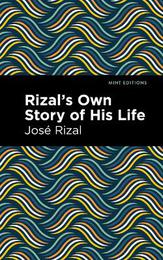
|
Rizal's Own Story of His Life
Paperback / softback
Main Details
Description
"I was born on Wednesday, the nineteenth of June, 1861. It was a few days before the full of the moon. I found myself in a village. I had some slight notions of the morning sun and of my parents. That is as much as I can recall of my baby days." Two decades after his untimely death, Rizal's Own Story of His Life-the autobiography of Jose Rizal-was published and made available to an English-speaking audience. The story, which Rizal began at just seventeen years old, follows him from birth to the days leading up to his execution and traces the steps of a boy who would become the Philippine's national hero. Professionally typeset with a beautifully designed cover, this edition of Rizal's Own Story of His Life is a sensational reimagining of South Asian literature for the modern reader.
Author Biography
Jose Rizal (1861-1896) was a Filipino poet, novelist, sculptor, painter, and national hero. Born in Calamba, Rizal was raised in a mestizo family of eleven children who lived and worked on a farm owned by Dominican friars. As a boy, he excelled in school and won several poetry contests. At the University of Santo Tomas, he studied philosophy and law before devoting himself to ophthalmology upon hearing of his mother's blindness. In 1882, he traveled to Madrid to study medicine before moving to Germany, where he gave lectures on Tagalog. In Heidelberg, while working with pioneering ophthalmologist Otto Becker, Rizal finished writing his novel Touch Me Not (1887). Now considered a national epic alongside its sequel The Reign of Greed(1891), Touch Me Not is a semi-autobiographical novel that critiques the actions of the Catholic Church and Spanish Empire in his native Philippines. In 1892, he returned to Manila and founded La Liga Filipina, a secret organization dedicated to social reform. Later that year, he was deported to Zamboanga province, where he built a school, hospital, and water supply system. During this time, the Katipunan, a movement for liberation from Spanish rule, began to take shape in Manila, eventually resulting in the Philippine Revolution in 1896. For his writing against colonialism and association with active members of Katipunan, Rizal was arrested while traveling to Cuba via Spain. On December 30, 1896, he was executed by firing squad on the outskirts of Manila and buried in an unmarked grave.
|